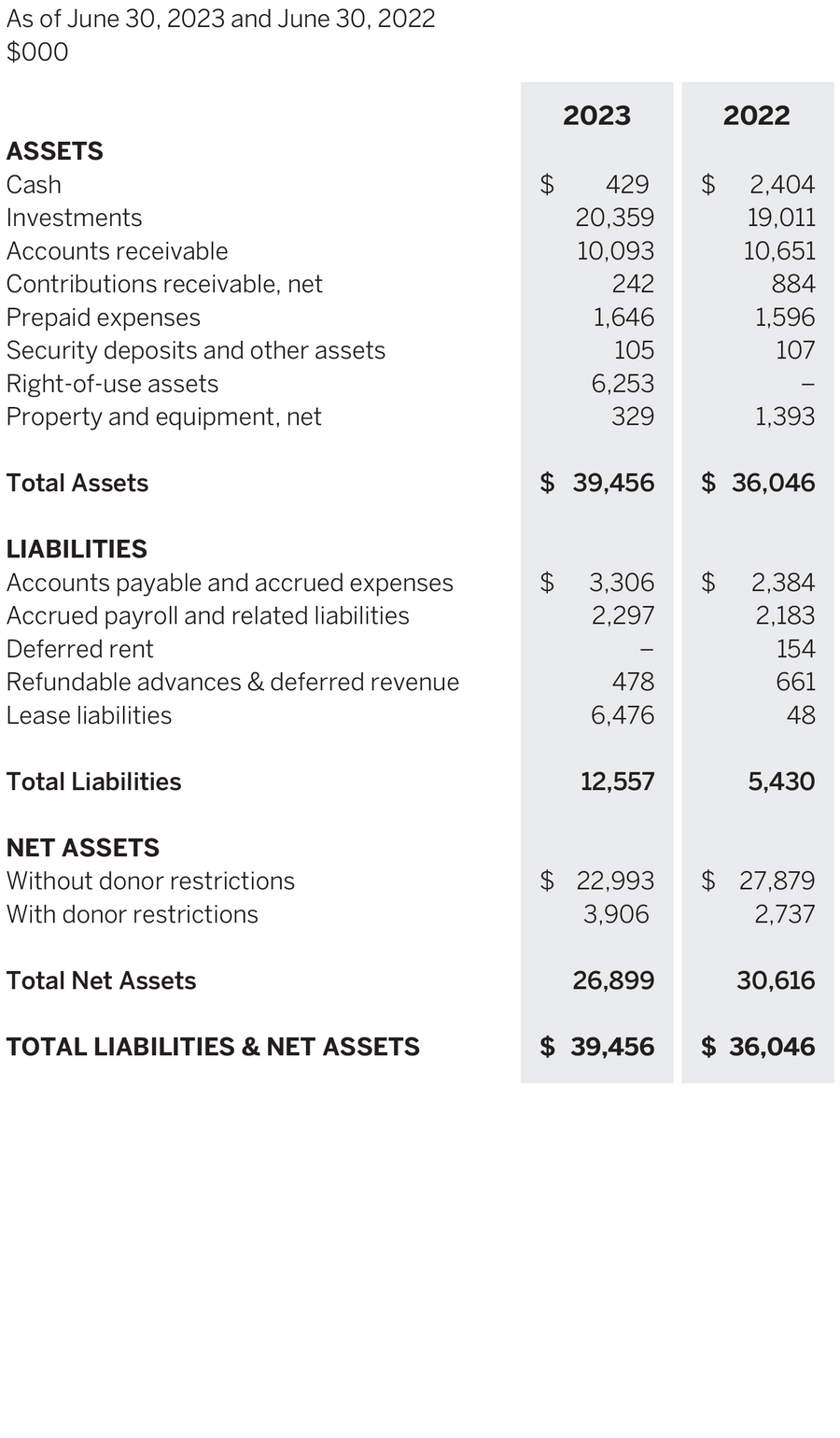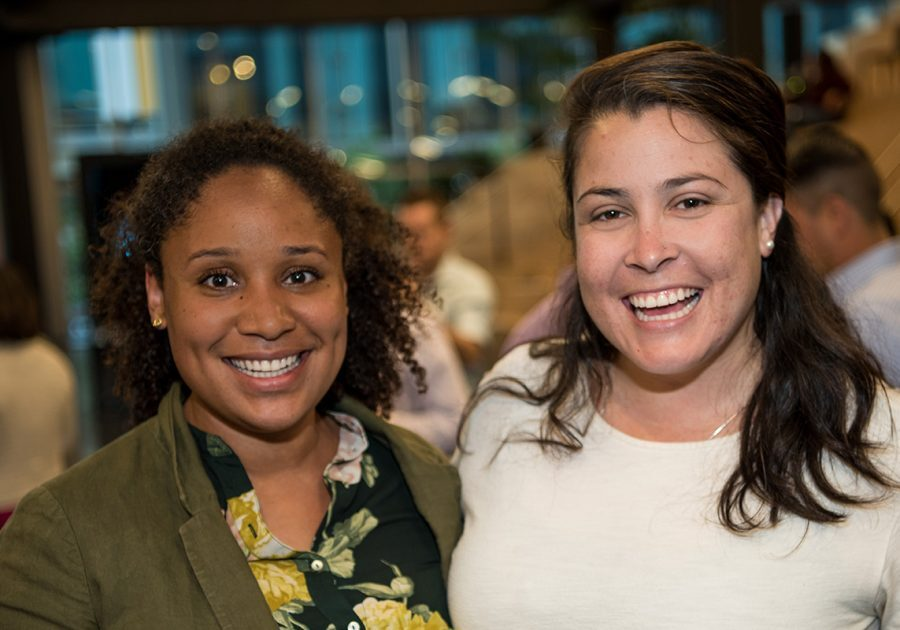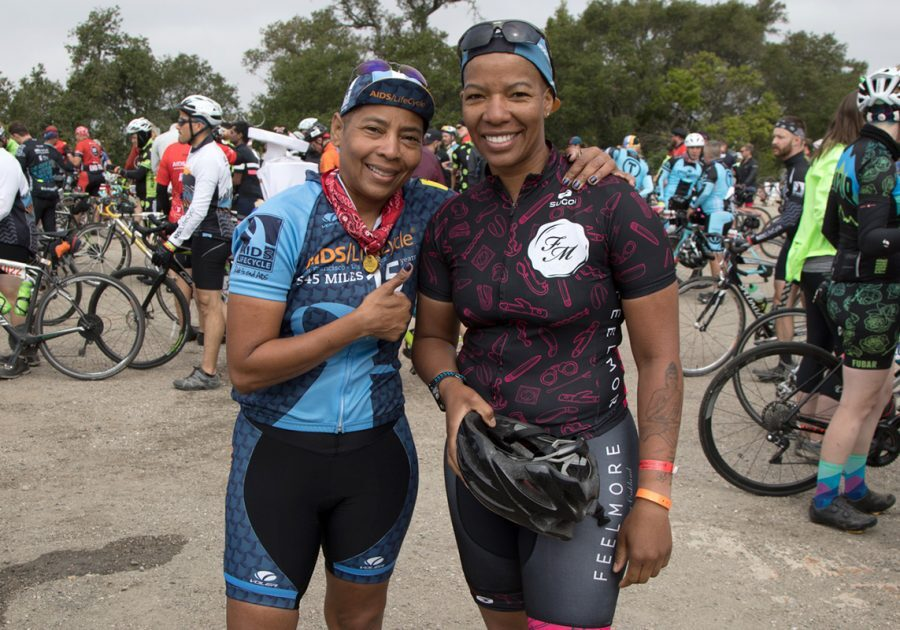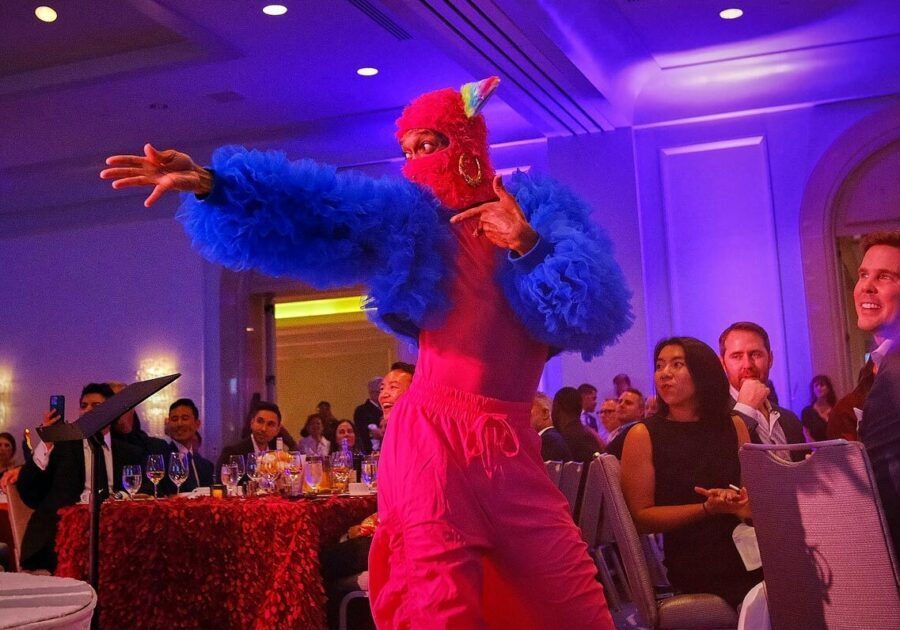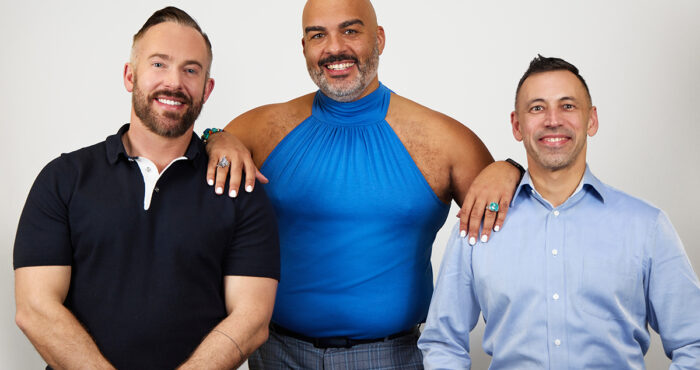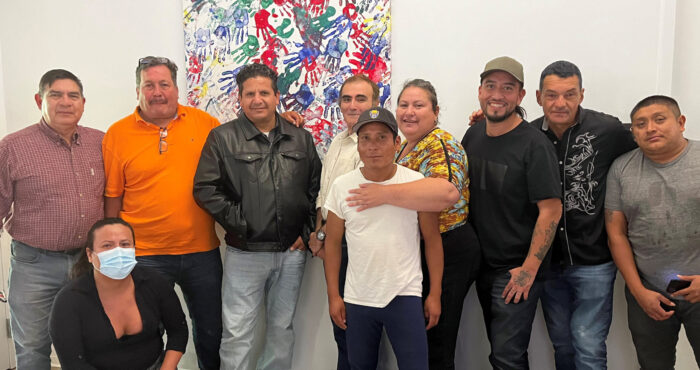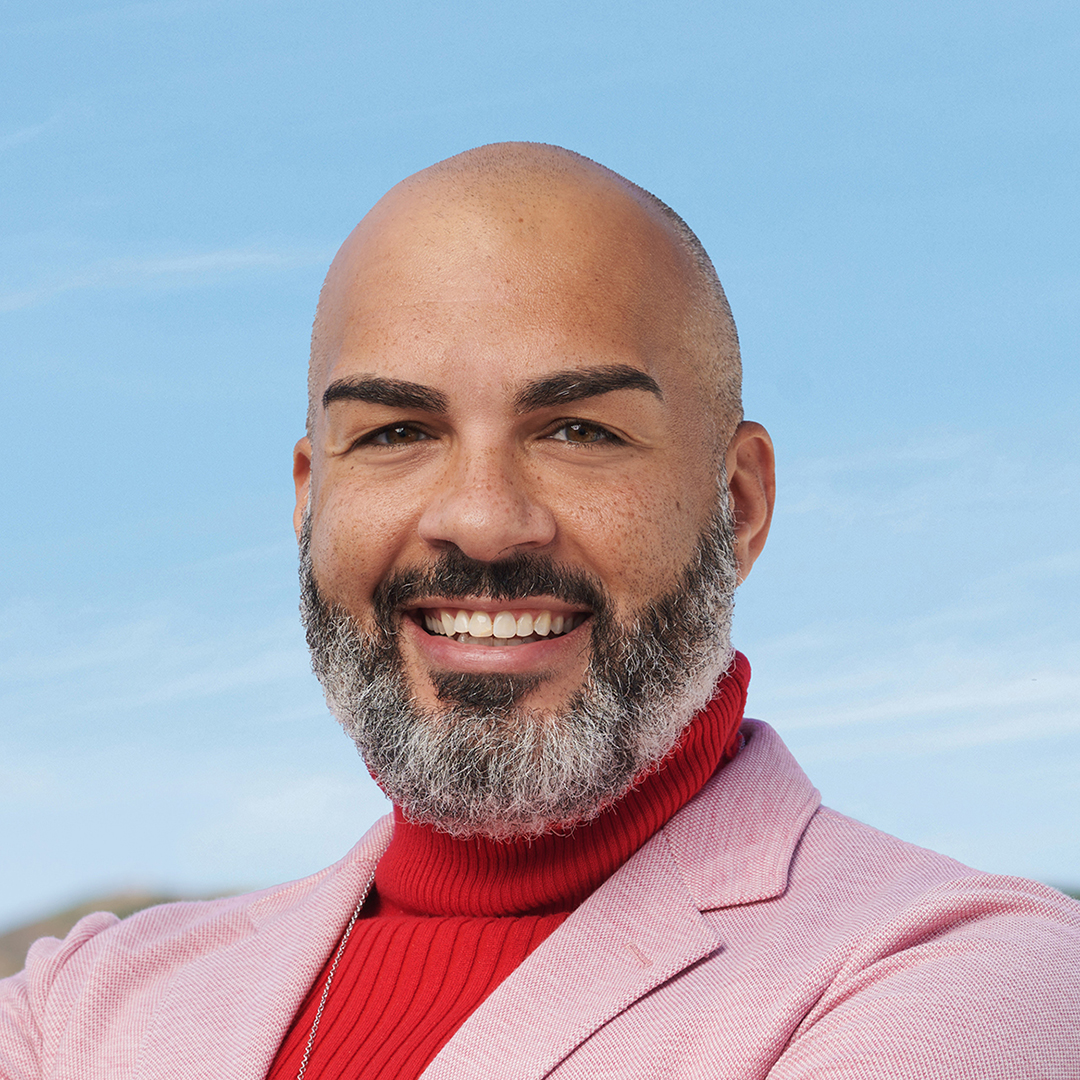
Leadership
CEO LETTER
Last year marked my second year at the helm of San Francisco AIDS Foundation. Looking back, it was an exciting year of innovation and growth, and also a time marked by significant challenges to our work and the communities we serve.
On this page, you’ll read more about the impact our programs and services have had on ending the HIV epidemic. City-wide, HIV infections continue to decline thanks to the consistent and ever-expanding access to HIV testing, prevention, care, and support provided by our agency and our partners. You’ll also read more about how our programs and services are finding innovative ways to tackle issues that intersect with HIV: lending support to people aging with HIV and AIDS, ensuring that Queer people can easily access non-judgmental STI prevention and care, ensuring that people who use drugs have the harm reduction resources they need to prevent HIV, Hepatitis, and overdose, to name a few.
Significant investments in the foundations of our agency–our staff, our leadership, and our physical locations–have made it possible for these programs and services to continue and grow. In the past year, we re-assessed our space needs and, after more than a decade in the same building, made the decision to relocate our main office to a building that more closely matches the needs of our clients, volunteers, and our staff. With the closing of the city’s Tenderloin Community Linkage Center in late-2022, we increased service provision through our Harm Reduction Center in the SoMa/Tenderloin neighborhood, and continue to plan for expansion of much-needed overdose prevention and harm reduction services.
Investments in staff and retention of talent continue to be a priority for our newly-formed People & Culture team, along with Justice, Diversity, Equity, and Inclusion policies and programs that build a diverse workforce representative of the communities we serve. Our Black staff meet the needs of Black women through the newly-established HUES program and our long-lived Black Brothers Esteem group; transgender and genderqueer staff provide counseling, case management, and support to clients who are part of our TransLife and TransCare programs; and Spanish-speaking staff connect monolingual Spanish-speaking community members to health care and social services. As the HIV epidemic shifts continues to disproportionately impact our priority communities, we are here to respond with nuance and care.
Investments in recruitment and hiring have also reflected recent priorities to diversify our staff and Board. For the first time ever, the majority of chief executives at SFAF are people of color, and our Board of Directors is composed of more than 50% people of color. These changes are representative of the historic shifts our organization is undergoing to ensure that we remain nimble, flexible, and responsive to the communities we need to serve through our work.
As we look to the future of SFAF, we remain inspired, committed, and hopeful. We are inspired by the many leaders, activists, long-term survivors, and allies who have pushed this work forward for more than 40 years. We are committed to our communities, who make this work meaningful and personal each and every day. We are hopeful for a future where health justice for all is a reality.
Thank you for supporting San Francisco AIDS Foundation.
In gratitude,
Tyler TerMeer, PhD
Chief Executive Officer
San Francisco AIDS Foundation
CEO Letter
On this page, you’ll read more about the impact our programs and services have had on ending the HIV epidemic. City-wide, HIV infections continue to decline thanks to the consistent and ever-expanding access to HIV testing, prevention, care, and support provided by our agency and our partners. You’ll also read more about how our programs and services are finding innovative ways to tackle issues that intersect with HIV: lending support to people aging with HIV and AIDS, ensuring that Queer people can easily access non-judgmental STI prevention and care, ensuring that people who use drugs have the harm reduction resources they need to prevent HIV, Hepatitis, and overdose, to name a few.
Significant investments in the foundations of our agency–our staff, our leadership, and our physical locations–have made it possible for these programs and services to continue and grow. In the past year, we re-assessed our space needs and, after more than a decade in the same building, made the decision to relocate our main office to a building that more closely matches the needs of our clients, volunteers, and our staff. With the closing of the city’s Tenderloin Community Linkage Center in late-2022, we increased service provision through our Harm Reduction Center in the SoMa/Tenderloin neighborhood, and continue to plan for expansion of much-needed overdose prevention and harm reduction services.
Investments in staff and retention of talent continue to be a priority for our newly-formed People & Culture team, along with Justice, Diversity, Equity, and Inclusion policies and programs that build a diverse workforce representative of the communities we serve. Our Black staff meet the needs of Black women through the newly-established HUES program and our long-lived Black Brothers Esteem group; transgender and genderqueer staff provide counseling, case management, and support to clients who are part of our TransLife and TransCare programs; and Spanish-speaking staff connect monolingual Spanish-speaking community members to health care and social services. As the HIV epidemic shifts continues to disproportionately impact our priority communities, we are here to respond with nuance and care.
Investments in recruitment and hiring have also reflected recent priorities to diversify our staff and Board. For the first time ever, the majority of chief executives at SFAF are people of color, and our Board of Directors is composed of more than 50% people of color. These changes are representative of the historic shifts our organization is undergoing to ensure that we remain nimble, flexible, and responsive to the communities we need to serve through our work.
As we look to the future of SFAF, we remain inspired, committed, and hopeful. We are inspired by the many leaders, activists, long-term survivors, and allies who have pushed this work forward for more than 40 years. We are committed to our communities, who make this work meaningful and personal each and every day. We are hopeful for a future where health justice for all is a reality.
Thank you for supporting San Francisco AIDS Foundation.
In gratitude,
Tyler TerMeer, PhD
Chief Executive Officer
San Francisco AIDS Foundation
Leadership
Tyler TerMeer, PhD
Chief Executive Officer
Douglas Black
Chief Financial Officer
Ben Cabangun, MA
Chief of Staff
Lara Honey Brooks
Chief Programs Officer (through August, 2023)
Peter Parisot, JD
Chief Legal Counsel
Our Financials: Charts
Our Financials
The financial information included herein is derived from our audited financial statements for the year ended June 30, 2023, a complete copy of which can be found on out website at sfaf.org/financials.
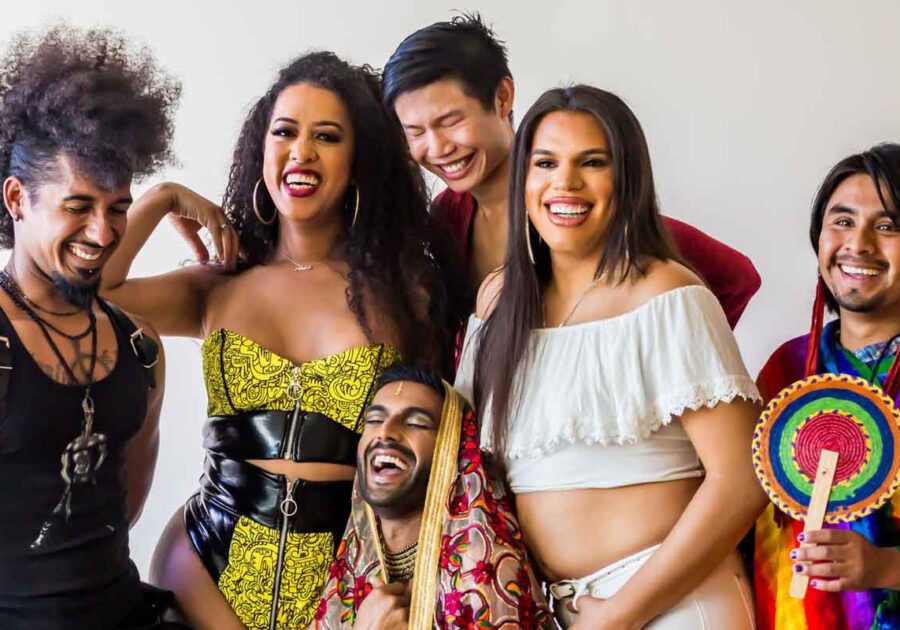
Our Vision
San Francisco AIDS Foundation envisions a future where health justice is achieved for all people living with or at risk for HIV. Ultimately, San Francisco AIDS Foundation strives for a day when race is not a barrier to health and wellness, substance use is not stigmatized, HIV status does not determine the quality of one’s life, and HIV transmission is eliminated.
Our mission is to promote health, wellness, and social justice for communities most impacted by HIV, through sexual health and substance use services, advocacy, and community partnerships.
We continue working toward goals outlined in our five-year strategic plan, launched in 2019. The plan describes how we will align our human and financial resources to the following strategic priorities, with a focus on ensuring equitable access and utilization by Black, Indigenous and all people of color and other priority communities.
- Maintain, expand and pilot HIV, hepatitis C, and STI prevention and treatment, and other sexual health services to ensure equitable access and utilization by people of color.
- Maintain, expand and pilot substance use services, syringe access, and overdose prevention efforts including establishing safer injection sites.
- In partnership, create a comprehensive network of health and wellness services for people over the age of 50 who are living with HIV.
- Strengthen organizational excellence with a focus on living our values, including a commitment to racial justice.
- Respond to public health crises with a race equity strategy.
Our Vision: Strategic Priorities
Our mission is to promote health, wellness, and social justice for communities most impacted by HIV, through sexual health and substance use services, advocacy, and community partnerships.
We continue working toward goals outlined in our five-year strategic plan, launched in 2019. The plan describes how we will align our human and financial resources to the following strategic priorities, with a focus on ensuring equitable access and utilization by Black, Indigenous and all people of color and other priority communities.
- Maintain, expand and pilot HIV, hepatitis C, and STI prevention and treatment, and other sexual health services to ensure equitable access and utilization by people of color.
- Maintain, expand and pilot substance use services, syringe access, and overdose prevention efforts including establishing safer injection sites.
- In partnership, create a comprehensive network of health and wellness services for people over the age of 50 who are living with HIV.
- Strengthen organizational excellence with a focus on living our values, including a commitment to racial justice.
- Respond to public health crises with a race equity strategy.
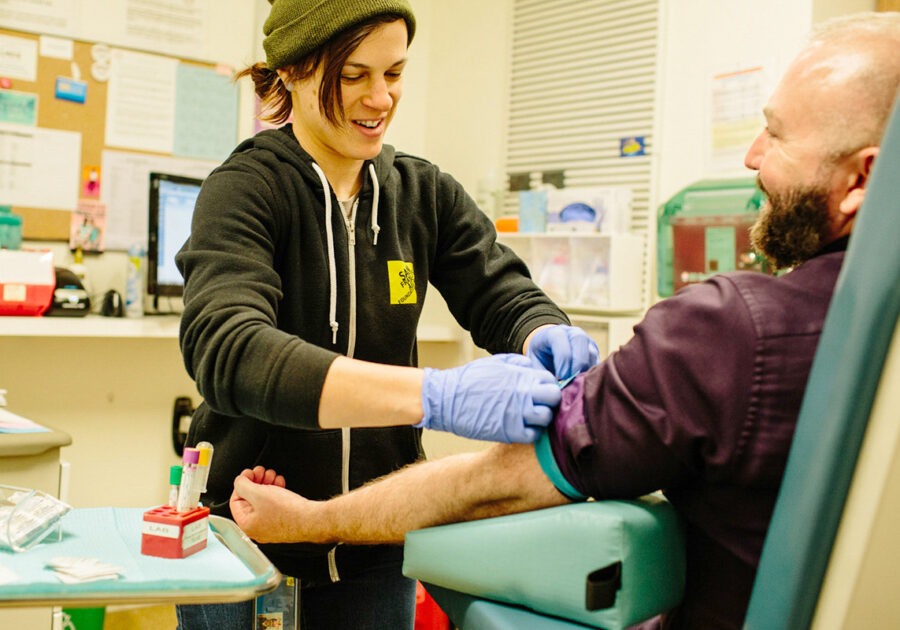
Our Work
Our work promotes health, wellness, and social justice for communities most impacted by HIV, through sexual health and substance use services, advocacy, and community partnerships. And none of this work would be possible without the support of our administrative staff who works behind the scenes.
Our Work: Services
Last year, we continued to be a city-wide leader in the HIV, PrEP, and sexual health clinical services we are known for—and as a result, saw the number of new HIV infections diagnosed city-wide decline to 157 infections. We provided 12,615 HIV tests and engaged 3,100 people in our PrEP program. More than 14% of our sexual health clients identify as transgender, non-binary, or gender non-conforming, and a total of 158 clients received services through our TransCare program. New this year, we provided Doxy PEP for sexually transmitted infection prevention to 2,381 clients, and launched a visible Doxy PEP marketing campaign in Queer bars and clubs to raise awareness about this innovative prevention strategy. We continued our provision of injectable long-acting CAB-PrEP, continued our Mpox information-sharing and services, and expanded our PrEP program to include telehealth services for people who live beyond the Bay Area.
In 2023, we continued to respond with compassion and care to the overdose epidemic and to improve the health and wellness of people who use substances. Our substance use counseling and treatment program The Stonewall Project expanded services to trans feminine and non-binary individuals and tripled our Spanish-language capacity. Our contingency management program, PROP, expanded to 12 full-time staff members, increasing our availability of services for people interested in changing their use of meth and other stimulants. With the closure of the city’s Tenderloin Center, we saw an influx of need for harm reduction services and care in the Tenderloin/SoMa neighborhood, with our Harm Reduction Center on 6th Street seeing hundreds of participants on a daily basis. Through our Pick Up Crew, mobile outreach teams, and staff at the Harm Reduction Center, we distributed more than 54,746 doses of the overdose reversal medication naloxone. We continued our drug checking service to help raise awareness about the San Francisco drug supply, and launched a program to connect people to medication assisted treatment (MAT) services. We also developed and launched two community education and media campaigns to increase awareness of overdose prevention strategies and resources, and connect people to safer use and harm reduction services, with the campaign gaining over 1.1 million impressions.
In 2023, we expanded our services for people over age 50, serving new communities through our HUES (Healing and Uniting Every Sister) program for Black women and through new programming with transgender, non-binary, and gender non-conforming community members with our TransLife program. Our Aging Services team, in collaboration with other San Francisco agencies, hosted an intergenerational brunch for hundreds of transgender community members during Pride, elevating and honoring the experiences of our TGNCI+ elders, and hosted a variety of large community gatherings for long-term survivors and other community elders throughout the year. We re-launched a clinical internship program for people interested in building skills related to direct clinical services and community engagement, with 12 interns working across our sexual health clinic and community programs. Serving Latinx Spanish-speaking community members, our Latinx Health team continued Covid-19 mitigation outreach, linkage and connection to care through community health “promotores,” and community celebrations at Carnaval and Pride.






